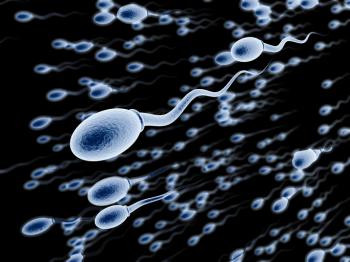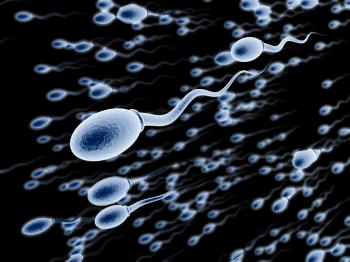We are experiencing a very high volume of calls and messages and ask for your patience. We will answer your portal messages within 48 hours.
We are experiencing a very high volume of calls and messages and ask for your patience. We will answer your portal messages within 48 hours.

Much of fertility treatment focuses on the needs of women-- but men play an important role, too! Keeping yourself healthy means looking after your own fertility-- and that means taking care of your sperm. Here are some of the most common questions we get from men who are worried about their ability to help create a pregnancy.
In order to produce sufficient sperm, the testicles must be at a temperature lower than the core body heat and slightly higher than the scrotal temperature. Increase in heat to the testicles reduces their ability to produce sufficient sperm.
However, there is no scientific data that links tight underwear to an increase in testicle temperature. Therefore, men should wear whatever underwear is comfortable, but looser underwear is recommended.
The answer depends on the male. Some men who have been hit in the testicles feel great pain but recuperate within days and nothing is severely damaged. However, some men may experience testicular rupture, ruptured blood vessels, haematocele (blood clot), testicular torsion, and/or muscle spasms.
Therefore, everytime you are hit in the testicles it does not mean your sperm count will lower; it depends on the severity of the hit and the damage it has caused to the testicles. Even if the sperm count is low, remember it only takes one to fertilize an egg!
Riding a bike does affect sperm motility. If a man is doing strenuous biking, his scrotal temperature rises which reduces the sperm count and the lack of blood flowing to the genitals can affect his ability to achieve an erection. In addition, traumatic compression can occur if the nerves in the perineum and in the penile artery are pinched.
Microtraumatization can cause sperm to be less motile. This is the result of calcium deposits in the testicles which are caused by repeated chronic microtraumatization of the scrotum that causes scarring of the blood vessels inside the testicles. Manufacturers are now addressing the problem and developing new bicycle seats for men that will decrease the pressure/riders weight off the perineum. Also, you can visit your local bike shop and speak with the employees about the type of seat that will best suit your body.
As women age their egg quality decreases; however, this is not true about male sperm. Women are born with a certain amount of eggs and as they get older, so do the eggs. On the other hand, men produce new sperm every day.
Studies have shown as men age they have a decline in semen volume, sperm motility and morphology, however, nothing correlates age and sperm concentration. Therefore, it is harder for women to get pregnant with an older male, but it is not impossible!
There are many ways on which you can change your lifestyle in order to improve your sperm quality. First off, avoid heat. As said in a previous question, rise in temperature to the scrotum can cause sperm abnormalities. In order to avoid heat stay away from hot tubs, saunas, tight fitting clothing and avoid long distance bike rides.
Next, avoid toxins such as cigarette smoke, pesticides, chemicals, electronic devices (resting a laptop on your lap or phone in your pocket), and excessive amounts of alcohol. Take daily vitamins that include but not limited to: zinc, vitamin B12, folic acid, vitamin C, and L-carnitine; while keeping a healthy balanced diet.

Entire Website © 2003 - 2020
Karande and Associates d/b/a InVia
Fertility Specialists
